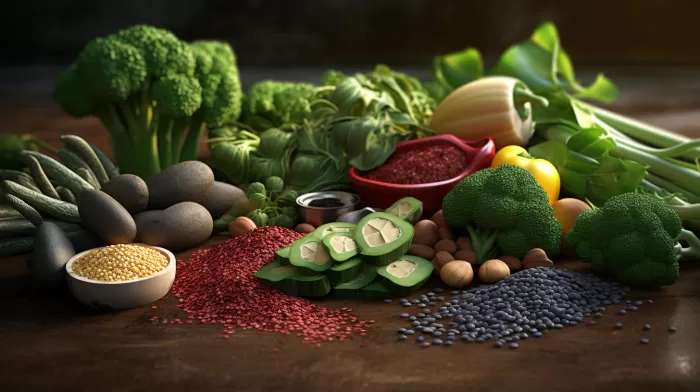Meat is a significant part of the American diet, with the average American consuming an impressive 175 lbs. of it each year. However, this level of meat consumption may not be as beneficial to our health as we think. The reality is that proteins are crucial in our diet, as they are the primary building blocks of our body and are needed for the growth and repair of our tissues. Proteins consist of amino acids, 22 of which are essential for our health. Our bodies can produce 13 of these but the remaining 9 must be obtained from our food intake.
Proteins can be sourced from a range of foods, including meat, eggs, cheese, and other animal sources that contain complete proteins, which means they provide all nine essential amino acids. However, animal proteins are not the only way to obtain complete proteins. Combining beans and grains, for example, will also provide all of the essential amino acids. It is important to consider that animal proteins are only 22 percent bioavailable and commonly contain animal fat. Too much animal protein or animal fat can lead to a heightened risk of cardiovascular disease and cancer – especially if the meat is burned or charred during cooking.
Plant Protein
Plant-based proteins offer a healthier alternative to animal proteins. Not only are they more easily digestible, but they also contain more fiber, which aids in digestion and may help lower cholesterol levels. Some of the healthiest plant-based protein sources include:
- Quinoa (a complete protein)
- Spirulina
- Nutritional yeast
- Legumes
- Hemp seeds
- Chia seeds
- Nuts
- Grains
- Vegetables like peas, spinach, kale, broccoli, sprouts, and mushrooms.
To ensure a well-rounded intake of proteins, it is recommended to consume a variety of high-quality protein sources, while avoiding genetically modified organisms (GMOs). For those following a vegetarian diet, whey protein derived from milk can also be a helpful addition to your daily protein intake.
Protein Powders
Protein powders are another way to supplement your protein intake. They are available in three forms: whey isolate, whey concentrate, and whey hydrolysate, with the difference being the composition and protein content of each. High-quality whey protein from organically pastured cows can be especially beneficial for your health, as it contains three essential ingredients: leucine, glutathione, and conjugated linoleic acid (CLA).
Leucine
Leucine is a powerful muscle builder, which is helpful for weight loss, protein synthesis, and muscle growth. Whey protein is especially ideal because it contains far more leucine than other foods.
Glutathione
Glutathione protects cells from damage caused by oxidative stress. It not only helps detoxify the body but also contributes to the prevention of diseases like Alzheimer’s, Parkinson’s, cardiovascular diseases, and more.
Conjugated Linoleic Acid (CLA)
CLA is beneficial for weight loss, as it reduces food intake, stimulates the breakdown of dangerous body fats, and inhibits the production of body fat while preserving muscle mass. Additionally, CLA is essential for fighting against diseases like cancer, osteoporosis, and high blood pressure.
Plant Protein Powder Sources
Hemp
Hemp seeds are nutrient-dense and have numerous health benefits. They are ideal for heart health, skin health, combatting PMS and menopause symptoms, and promoting digestion.
Pea Isolate/Brown Rice Isolate Combination
Combining pea isolate with brown rice isolate can give you a “complete” protein with all nine essential amino acids.
How Much Protein is Right for You?
The optimal protein intake can be calculated by considering your body weight or by percentage of macronutrient intake. A general guideline is to ensure at least 15 to 20 percent of your daily calories come from protein. On a 2000 calorie per day diet, this equates to approximately 75 grams of protein per day at a minimum.



